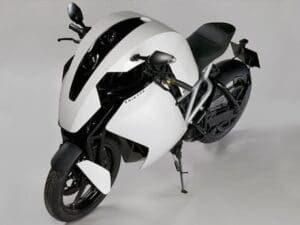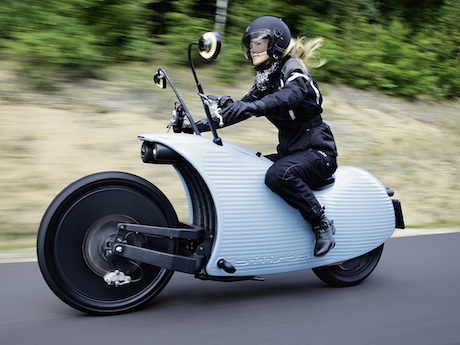Electric motorcycles are hindered by the size and weight of conventional batteries, but the answer could be in lightweight supercapacitors built into the bodywork.

Queensland University of Technology nanotechnology scientists are working on supercapacitors which they believe could one day replace batteries in electric vehicles.
Research leader Prof Munzio Motta says supercapacitors can deliver more energy in bursts which would be great for acceleration.
Supercapacitors are a thin, light and strong film made of two all-carbon electrodes sandwiched around an electrolyte. They could easily be placed within the bodywork of a sportsbike.
A drawback is that they don’t store a lot of charge, so you need a lot of them. Munzio says that at the moment, they would be more practical in cars with large panels and surface area.
“But we are making rapid advances all the time and they are feasible for use in electric motorcycles,” he says.

“I’ve just received an email of a paper in which they claim they found a new way of holding the charge. It’s all a work in progress.”
Another advantage of supercapacitors over batteries is that they charge more quickly.
Perhaps the answer is a combination of battery and supercapacitors to give electric motorcycles more range and faster charging. These have been the two biggest hurdles for the introduction of electric vehicles.
Postdoctoral Research Fellow Dr Jinzhang Liu says they hope supercapacitors will one day store more energy than a lithium-ion battery while retaining the ability to release its energy up to 10 times faster. He says he can see the day when they provide electric vehicles with the same range as petrol-powered vehicles.
The team’s results are published in the Journal of Power Sources and Nanotechnology.
Meanwhile, battery technology continues unabated: Researchers at Philadelphia’s Drexel University believe a conductive clay could one day replace the electrode materials used in batteries and supercapacitors, while German researchers at Karlsruhe Institute of Technology’s Helmholtz Institute Ulm say an electrolyte can be used in new magnesium-sulfur battery cells to make batteries more efficient and inexpensive.
Who knows what the future will bring, but it won’t be long before we’re riding quiet and fast electric motorcycles.
Will you welcome sparky machines or stay with your internal combustion bike?


